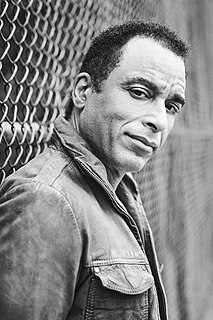A Quote by Grace Paley
To translate a poem from thinking into English takes all night.
Related Quotes
One of my favorite tricks was taking a page and having the first student translate it from English into whatever language he or she was working on, and the next one would translate it back into English and then into the foreign language, and we'd go around the room and compare the two English versions at the end, and it would be amazing how much survived.
Night is purer than day; it is better for thinking and loving and dreaming. At night everything is more intense, more true. The echo of words that have been spoken during the day takes on a new and deeper meaning. The tragedy of man is that he doesn't know how to distinguish between day and night. He says things at night that should only be said by day.
I can't understand how people can settle for having just one life. I remember we were in English class and we were talking about that poem by - that one guy. David Frost. 'Two roads diverged in a yellow wood-' You know this poem, right? 'Two roads diverged in a yellow wood, and sorry I could not travel both and be one traveler, long I stood and looked down one as far as I could, to where it bent in the undergrowth-" "I loved that poem. But I remember thinking to myself: Why? How come you can't travel both? That seemed really unfair to me.
The big problem in translating is that we had to translate the language. People may not know that we record the podcast in Japanese, translate it to English and then actors play us on the podcast. I'm not actually Scott Aukerman, I'm the actor who plays his voice on the podcast. Unfortunately, it's cost prohibitive on a television show.
The subject of the poem usually dictates the rhythm or the rhyme and its form. Sometimes, when you finish the poem and you think the poem is finished, the poem says, "You're not finished with me yet," and you have to go back and revise, and you may have another poem altogether. It has its own life to live.
I hope you're as lucky as I am. The world needs inventors--great ones. You can be one. If you love what you do and are willing to do what it really takes, it's within your reach. And it'll be worth every minute you spend alone at night, thinking and thinking about what it is you want to design or build. It'll be worth it, I promise.






































